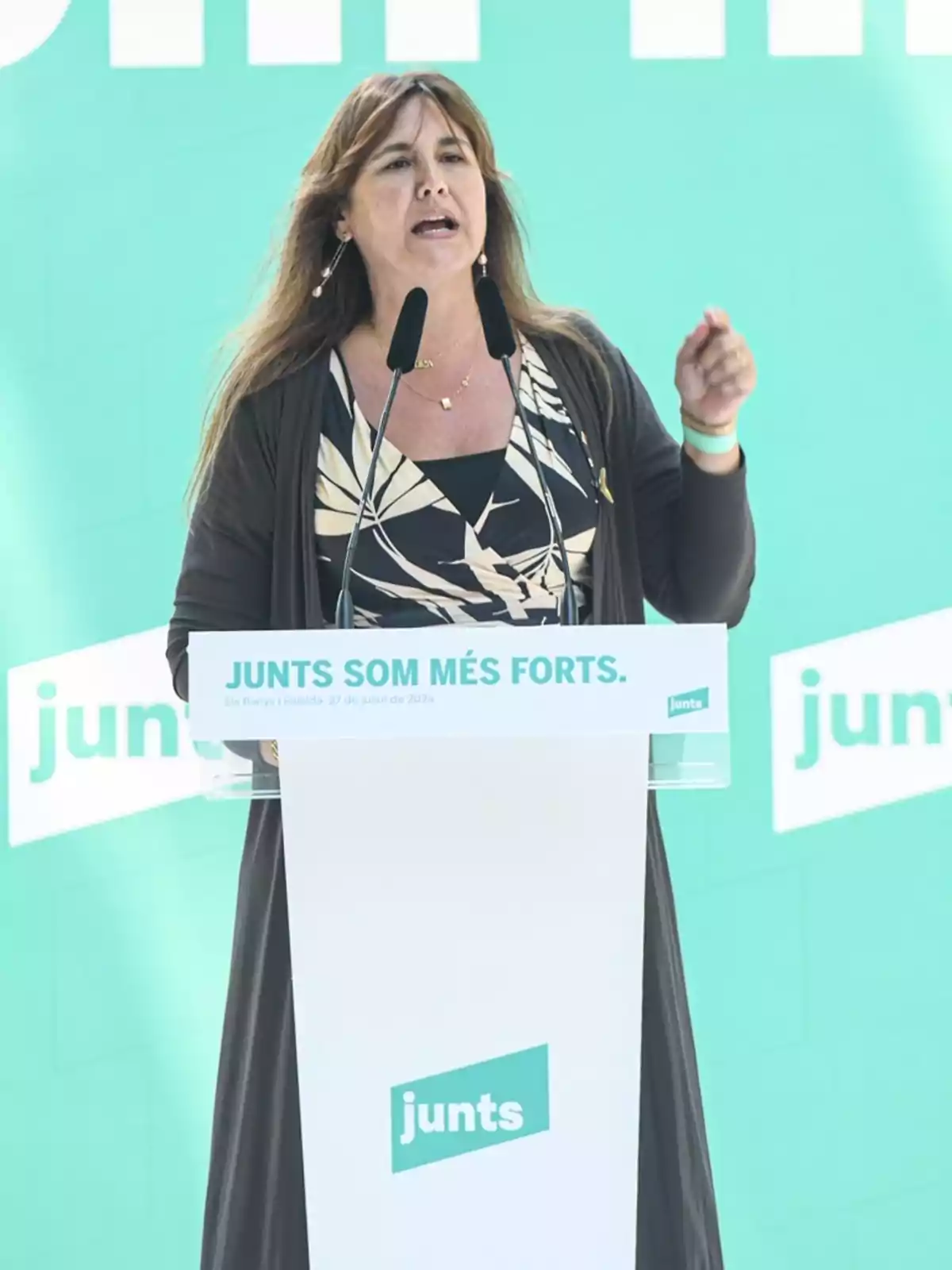
The Supreme Confirms Laura Borràs's Sentence and Rejects Granting Her Amnesty
The Supreme Court has dismissed the application of amnesty as it concerns corruption offenses unrelated to the procés
The Supreme Court Has Upheld Laura Borràs's Sentence to 4 and a Half Years in Prison and 13 Years of Disqualification for Prevarication and Document Falsification. Borràs split contracts to award them directly to a friend while she led the Institució de les Lletres Catalanes between 2013 and 2018.
The Supreme Court Has Also Rejected Her Request for Amnesty, Arguing That Her Crimes Are Not Related to the Catalan Independence Process. Borràs claimed that her "intensely pro-independence" profile and her work in a "clearly pro-independence government" justified the amnesty.
However, the Supreme Court considers that her conduct doesn't fall within the context of the procés. The Initial Sentence Was Issued in March 2023 by the High Court of Justice of Catalonia, Which Also Imposed a Fine of 36,000 Euros.

The Supreme Court Has Dismissed the Application of Amnesty as It Involves Corruption Crimes Unrelated to the Procés. This Decision Reinforces the Stance That Amnesty doesn't Cover Corruption Acts Unrelated to the Independence Movement.
Borràs Was Convicted for Irregularly Awarding 18 Minor Contracts, Totaling 335,700 Euros, to an Acquaintance for the Development of the ILC's Website. The Supreme Court Concludes That Her Conduct Is Not Linked to the Independence Process and, Therefore, Is Not Eligible for Amnesty.
This Resolution Highlights the Distinction Between Crimes Related to the Procés and Those of a Corrupt Nature. Borràs's Defense Argued That Her Actions Were Part of a Government with an Independence Vocation. But the Supreme Court Did Not Consider It Relevant for Amnesty.
The Sentence Highlights That Borràs's Conduct Pertains to Administrative Contracting to Facilitate a Direct Award, Ignoring the Regulations Intended to Prevent Corruption and Ensure Transparency.

This Supreme Court Decision Sets a Precedent in the Interpretation of the Amnesty Law Regarding Corruption Crimes. The Conviction and Denial of Amnesty Could Have Implications for Future Cases Related to Catalan Independence.
Borràs, Former President of the Parliament of Catalonia and of Junts, Now Faces the Fulfillment of the Imposed Sentence. The Supreme Court's Resolution Reinforces the Separation Between Corruption Crimes and Those Linked to the Procés in the Application of Amnesty.
This Ruling Could Influence the Defense Strategy of Others Involved in Similar Cases. The Decision Emphasizes the Importance of Transparency and Legality in Public Management, Regardless of the Political Context.
More posts: